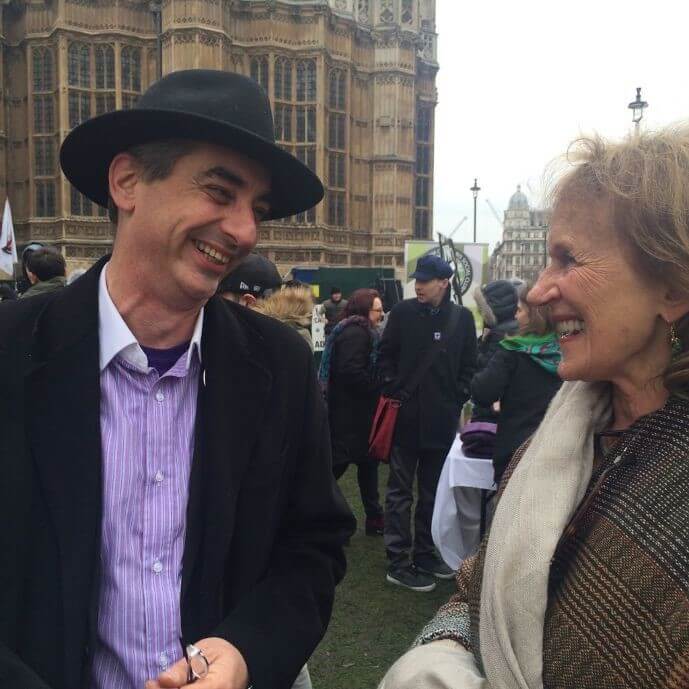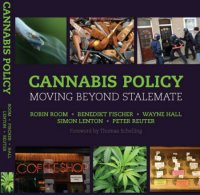
Green Shoots of Hope for Medical Cannabis in the UK
The heart-rending case of the six-year-old epileptic Alfie Dingley has brought cannabis regulation back into the public conversation this week, as calls to legalise medical cannabis grow ever-louder. Alfie has a rare form of childhood epilepsy that can cause him to endure up to 30 fits per day, necessitating up to 48 hospital visits a year.
But Alfie, like many others in the UK, experiences significant relief from his symptoms when taking a cannabis-based medication. Travelling to a paediatric neurologist in the Netherlands with his parents last year, Alfie was prescribed cannabis oil, a few drops of which saw his seizures significantly decrease in frequency and intensity, going 24 days without a single attack. If Alfie were a Dutch citizen, he would be legally permitted to enter the UK with his medication and continue taking this vital treatment at home. But current drug legislation criminalises British people using medical cannabis to ease their suffering.
Today, MP Paul Flynn and other politicians, as well as drug policy reform groups such as the United Patients Alliance and the Beckley Foundation, are calling for change to the outdated status quo. Flynn’s ‘Elizabeth Brice bill’, a Private Member’s bill named in memory of the tenacious cannabis rights campaigner, was due to enter its second reading in the House of Commons. The bill sought to amend not the Misuse of Drugs Act, which labels cannabis as a Class B substance, but the related Misuse of Drugs Regulations, which allow for the lawful possession and supply of controlled drugs. Under these regulations, cannabis is currently under ‘Schedule 1’- a category reserved for dangerous drugs of no therapeutic value, and subject to the strictest restrictions about their use. Frustratingly, extended debate in the Commons on another topic pushed the bill off the day’s schedule, leaving this crucial matter, for the time being at least, undebated and without a vote.
Placing cannabis in Schedule 1 has significantly hampered research into the therapeutic potential of the drug and its derivatives: the bureaucratic hurdles associated with this classification have added significant delays and sometimes prohibitive costs to vital research. Nonetheless, the evidence is now increasingly clear, and it demonstrates that the government’s stance towards medical cannabis is wholly out of line with scientific consensus. Among other conditions, cannabis can ease the nausea of those undergoing chemotherapy, as well as stimulating the appetite of those living with HIV/AIDS . Its ability to reduce spasticity led to the development of sativex, a successful treatment for multiple sclerosis. Germany recognises over 50 additional cannabis-treatable conditions. There is still lots of research to be done about the efficacy of cannabis for a range of other conditions. As yet we just don’t know what, if anything else, it could be used to treat successfully. Rescheduling cannabis will allow research to be done more easily, and we will reach the answers much sooner.
Our Director, Amanda Feilding, has long been convinced of the benefits of cannabis, and has been campaigning for reform of its regulation for two decades now. As part of her research with the Beckley Foundation, she will soon be releasing thoroughly evidenced policy proposals for new regulatory models in the UK, as part of our upcoming ‘Roadmaps to Regulation’ report. Today, Amanda was in London marching in support of the Elizabeth Brice bill, alongside hundreds of patients and their loved ones, all of whom can attest that cannabis can have life-changing therapeutic potential, and should not be withheld from those who can gain so much from it. Neither Amanda, nor any of the others present, will be deterred by today’s set-back.

Beckley Foundation Director Amanda Feilding with United Patients Alliance Political Director Jon Liebling
The Elizabeth Brice bill, which seeks to move cannabis from Schedule 1 to Schedule 2, would not only ease the restrictions that hamper research, but would allow doctors and pharmacists to prescribe and supply cannabis, meaning Alfie and others like him would be able to take the medicine they need without fear of prosecution.
Although the second reading of the Elizabeth Brice bill will now have to find a new space in the House of Commons’ hectic Friday scheduling, there is good reason to be optimistic. Not least, the bill is supported by politicians in both houses and in all parties. Opinions about medical cannabis are changing in Britain, even within Westminster. A 2016 poll of MPs conducted by Populus for VolteFace found that just 27% of MPs were opposed to cannabis legalisation for medical use. The co-chair of the All Party Parliamentary Group on Drug Policy Reform, Baroness Meacher, voiced the opinion held by so many when she said:
“When 11 (soon to be 14) European Countries and 29 US States among other nations have access schemes for medical uses of cannabis, it is outrageous that the UK is dragging its feet, causing untold suffering to thousands of patients.”
While no doubt some MPs will hold concern about the impact of legalising medical cannabis on rates of recreational use, these are without good cause. A systematic meta-analysis posted in the journal Addiction just yesterday failed to find any evidence that legalising cannabis led to increased prevalence of recreational use among adolescents.
Regardless of today’s outcome for the Elizabeth Brice bill, we may well be witnessing a tipping point for medical cannabis in the UK. In Alfie Dingley, we see perhaps the clearest example yet of why cannabis must be legalised for therapeutic use. Alfie’s family have gone on record saying that they will, if they have to, fight the Home Office through the courts to get their son the medicine they need. And as many commentators have noted, rescheduling cannabis does not require the long and arduous process of passing a bill into law: statutory instruments exist for the Home Secretary to move a substance into a new schedule, while awaiting guidance from the Advisory Council on the Misuse of Drugs. With continued pressure from politicians, patients, and activists, Home Secretary Amber Rudd may have no choice but to sit up, listen, and act.
There is hope for Alfie yet.

Luzita Hill, a cancer patient and policy reform activist attending the march
Words: Eddie Jacobs
Podcast
- All
Links
- All
Support
- All
BIPRP
- All
Science Talk
- All
Amanda's Talks
- All
- Video Talk
- Featured
- 2016 Onwards
- 2011-2015
- 2010 and Earlier
- Science Talk
- Policy Talk
One-pager
- All
Music
- All
Amanda Feilding
- All
Events
- All
Highlights
- All
Psilocybin for Depression
- All
Current
- All
Category
- All
- Science
- Policy
- Culture
Substance/Method
- All
- Opiates
- Novel Psychoactive Substances
- Meditation
- Trepanation
- LSD
- Psilocybin
- Cannabis/cannabinoids
- Ayahuasca/DMT
- Coca/Cocaine
- MDMA
Collaboration
- All
- Beckley/Brazil Research Programme
- Beckley/Maastricht Research Programme
- Exeter University
- ICEERS
- Beckley/Sant Pau Research Programme
- University College London
- New York University
- Cardiff University
- Madrid Computense University
- Ethnobotanicals Research Programme
- Freiburg University
- Medical Office for Psychiatry and Psychotherapy, Solothurn
- Beckley/Sechenov Institute Research programme
- Hannover Medical School
- Beckley/Imperial Research Programme
- King's College London
- Johns Hopkins University
Clinical Application
- All
- Depression
- Addictions
- Anxiety
- Psychosis
- PTSD
- Cancer
- Cluster Headaches
Policy Focus
- All
- Policy Reports
- Advisory Work
- Seminar Series
- Advocacy/Campaigns
Type of publication
- All
- Original research
- Report
- Review
- Opinion/Correspondence
- Book
- Book chapter
- Conference abstract
- Petition/campaign
Search type


